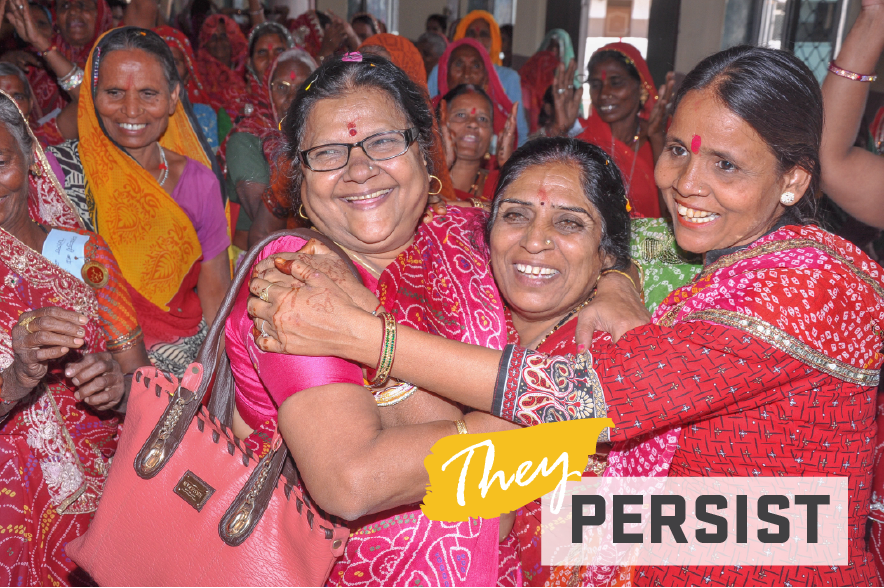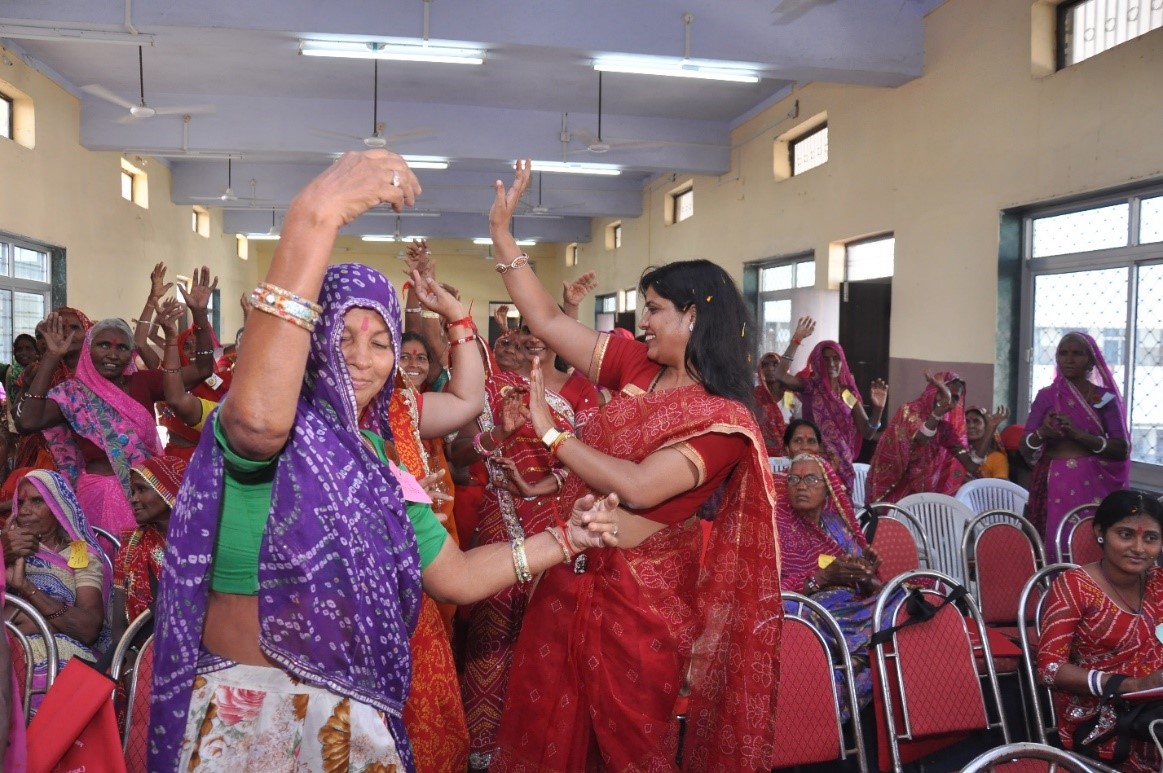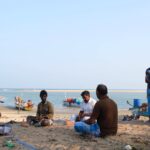This article was published more than 7 years ago.

From the global women’s marches to the #MeToo movement, it’s been quite a year for women in activism. As we close out 2017, the Fund for Global Human Rights is honoring women like the members of ASWA with our #ShePersists campaign—a series of stories that showcase the courage, strength, and resilience of the women human rights defenders we support around the world. Donate here to support activists like those of ASWA and read on for their inspiring story.
“Women in the organization enjoy life and liberty in a way that I haven’t seen before. For many of them it feels like they’ve been given a second chance at life.”
-Fund Program Officer for South Asia
At first glance, the Behen Dooj festival in Rajasthan, India might look like some sort of women-only dance party. But a closer look reveals that behind the dancing, singing, and celebration lies some serious feminist activism—and seriously fierce activists.
Last October, over 500 single women gathered in Rajasthan for the third annual Behen Dooj bash. The women created the festival as a safe space where they can express themselves freely and share their experiences—something they can’t do publicly because of the stigma associated with living by themselves.
The women who attend Behen Dooj are “alone:” they are widowed, single, deserted, or separated from their partners. In Rajasthan, like many parts of India, “alone” women are outcasts who are shunned from social events, cannot inherit land, and are often unable to find work due to their marital status. Women who are widowed face the added pressure of having to wear only white to signify their mourning. Completely defined by their relationship to their deceased husband, these women are inhibited from expressing their individuality for the rest of their lives. Stepping outside of any of these boundaries often means violence and increased alienation, making “alone” women incredibly vulnerable.
In this context, the Behen Dooj festival is more than just a celebration of sisterhood and solidarity—it’s an act of feminist resistance. Organized by the Association of Strong Women Alone (ASWA)—a Fund grantee—the event provides a rare chance for single women to connect, socialize, and celebrate their shared womanhood, all without judgment. For some, the experience feels like being given a second chance at life.

100,000+ women strong
Launched by 450 women in 1999 and rooted in the simple idea that single women are just as equal as anyone else, ASWA now has over 108,000 members in eight Indian states. This incredible growth occurred within years of its founding, as “alone” women sought after a community for support and recognized the power of collective action.
For Chandrakala Sharma, the State Coordinator of ASWA in Rajasthan, the group provides her with something everyone wants, but many single Indian women lack: a sense of belonging. “I joined the organization when I was 18. Since then, I have never felt I am alone, even though I am single. I live with a sense of purpose and wish for this kind of empowerment and sisterhood for all single people.”
ASWA’s contribution to women’s lives goes far beyond solidarity. As part of its mission to support and defend the rights of low-income single women, the organization provides crucial literacy and advocacy training for members, which enables them to speak out against discrimination and be more autonomous.
“We don’t need men to solve our problems anymore. Everything from filling out a [legal] form, to going outside the house to…work and….help others, we are able to do with complete freedom after joining [ASWA],” said Akeela, an ASWA member from Etawah, a small town in Rajasthan.

ASWA also works with local and national government officials to pass laws that address the needs of single women. This advocacy has led to several successes. For example, the ASWA group in Rajasthan convinced the government to include single and divorced women in their pension scheme, and negotiated a pension increase from $2 to $8 per month—still meager, but far more livable. Meanwhile, the ASWA chapter in the state of Himachal Pradesh worked with the government to waive school fees for all children of single women until 12th grade.
ASWA has also worked to root out harmful social practices, and was among the first organizations in India to challenge sexist cultural norms affecting single women. Early on, the widowed women of the organization began wearing vibrant colors, clearly violating entrenched social customs.
“There was a lot of backlash, including violence against the women. But they were successful,” said the South Asia Program Officer at the Fund for Global Human Rights.
A feminist holiday for single women
Emboldened by their victories, in 2014 ASWA set their sights on reversing another gendered custom: Bhai Dooj. A festival celebrated by Hindus during Diwali, Bhai Dooj is organized by women and girls, and is a time when sisters must honor their brothers. Throughout the holiday, women and girls cook their brothers’ favorite meals and give thanks to the men in their lives for protecting them.
Frustrated that there was no equivalent holiday to honor sisterhood, and seeking a way to overcome social barriers to bringing their members together, ASWA’s Rajasthan chapter started Behen Dooj, a festival which honors sisterhood between women. The first year they held the festival, they were shocked by how many women showed up. Three years later, Behen Dooj sold out at 500 tickets.

Behen Dooj can be life-changing for attendees. During the festival, women are invited to stand on stage and share their stories—something some have never done due to the stigma they face. During last October’s festival, one attendee, a widow, got up and explained just how much it meant to be surrounded by women like her.
“Looking at all of you feels like heaven has come down to earth. It has been 10 years since I have worn this red sari [a traditional piece of Indian clothing]. The last time I wore it was when my husband was alive. Today it feels like I have found a new family, and that is worth celebrating,” she said.
Behen Dooj has been such a success, ASWA plans to expand it in the future. It’s the kind of project that could only be pulled off by a grassroots group like theirs—which is precisely why the Fund invests in organizations like ASWA. Behen Dooj is just further proof that grassroots activism works.


